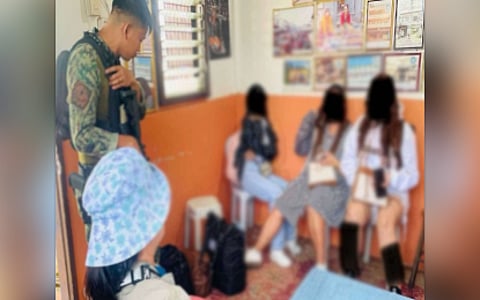
- NEWS
- the EDIT
- COMMENTARY
- BUSINESS
- LIFE
- SHOW
- ACTION
- GLOBAL GOALS
- SNAPS
- DYARYO TIRADA
- MORE

For the 10th consecutive year, the Philippines has secured Tier 1 status in the US Department of State’s 2025 Trafficking in Persons (TIP) report, cementing its position as a global leader in the fight against human trafficking.
This was announced on Tuesday by the Department of Justice (DoJ) and the Inter-Agency Council Against Trafficking (IACAT). A Tier 1 ranking signifies that the Philippines “fully meets the minimum standards” for eliminating human trafficking as set by the US Trafficking Victims Protection Act of 2000.
Of 188 countries assessed, only 33 achieved the top-tier ranking this year.
The 2025 report commended the Philippines for its “whole-of-nation” and victim-centered approach. It highlighted significant improvements in prosecution and law enforcement, leading to intensified rescue operations, investigations and convictions.
It specifically noted the courts’ use of plea bargaining in Online Sexual Abuse or Exploitation of Children (OSAEC) cases, which helps expedite justice and reduce trauma for child witnesses.
Prevention efforts were also praised, including boosted awareness campaigns, capacity building at the community level, and enhanced preventive mechanisms at ports and migration corridors.
The government’s provision of comprehensive services and assistance to Filipino victims, particularly migrant workers, was lauded as a demonstration of its commitment to protecting the vulnerable.
Justice Secretary and IACAT Chair Jesus Crispin Remulla credited President Ferdinand R. Marcos Jr.’s directive “to end human trafficking, ban POGOs that exploit individuals for forced scamming, and intensify efforts to put an end to the abhorrent crime of OSAEC.”
Remulla said the Tier 1 ranking serves as “a beacon of light, an impetus for our sustained efforts,” emphasizing that the fight is “for all of humanity.”
IACAT Undersecretary Nicholas Felix Ty reinforced the need for international collaboration, noting that the national campaign — ”Ilsang Nasyon, Ilsang Aksyon, Tapusin ang Human Trafficking at OSAEC Ngayon” (One Nation, One Action, End Human Trafficking and OSAEC Now) — relies on a shared drive across countries, especially those identified as destination points for trafficking.
The Philippines, despite a decade of top-tier recognition, reaffirmed that combating human trafficking remains not just a legal mandate, but a “shared moral obligation.”
